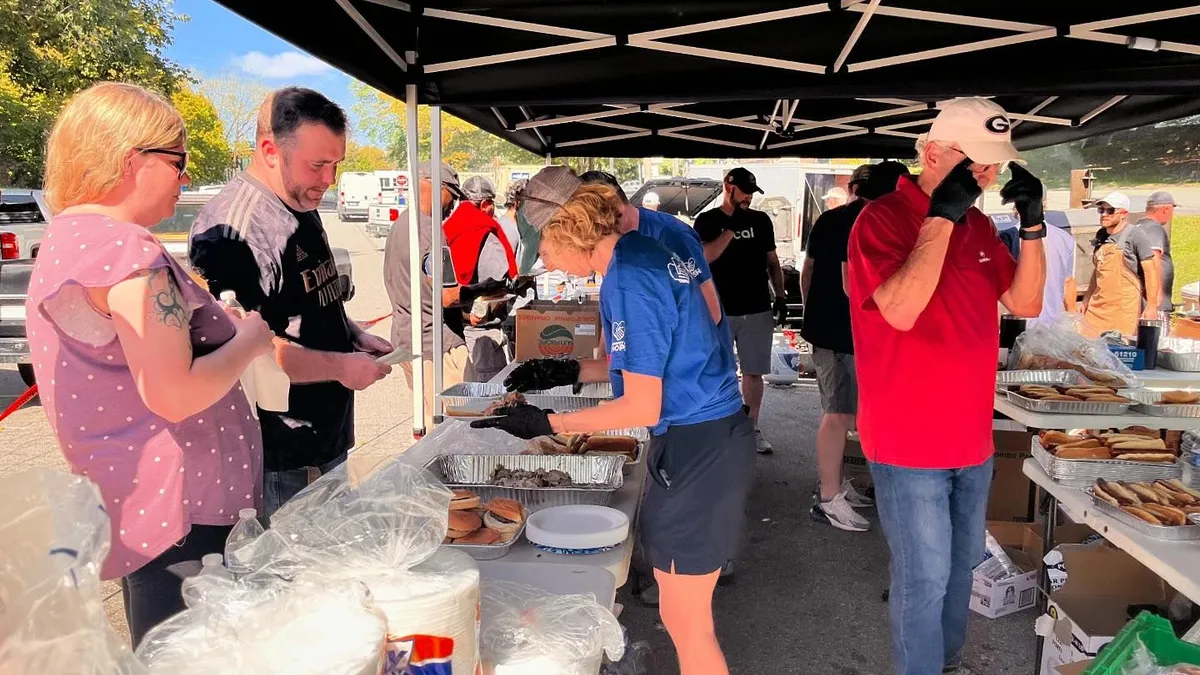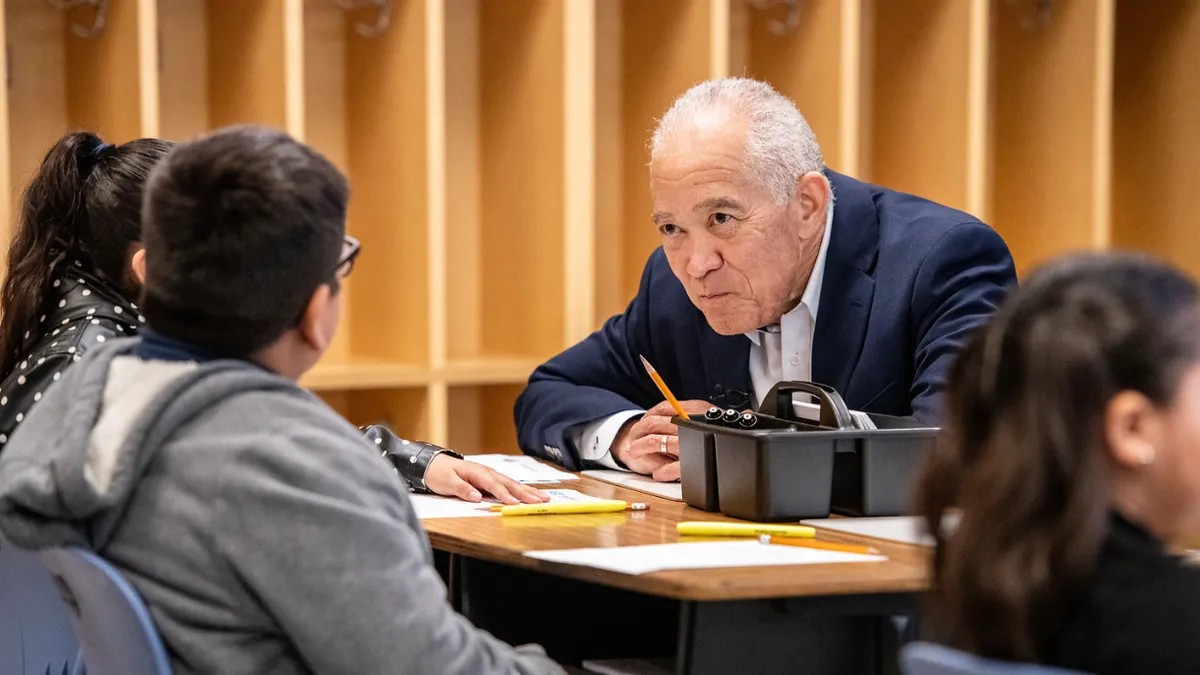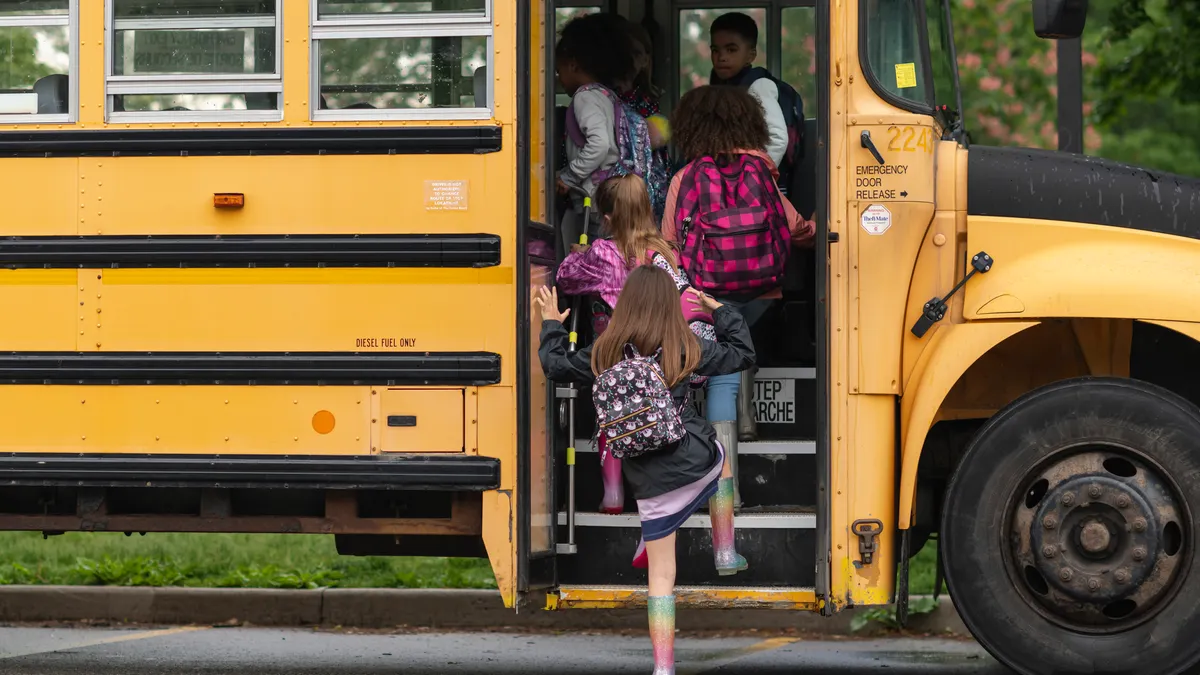When Kimberly Dechant walked into Asheville Middle School after Hurricane Helene, cases of bottled water had replaced the usual bustle of over 500 students who filled the North Carolina school’s halls just days prior.
The Category 4 tropical storm had washed away the city's water lines into the Swannanoa River, cut off power for thousands in the community, destroyed homes and killed over 200 people in the Southeast. It had also left Asheville City Schools' buildings relatively unharmed.
As Dechant, the school district's chief of staff, took a look around the middle school — which had been turned into a water distribution site for the community — she noticed a teacher volunteering to distribute water bottles.
"It was one of our teachers who lost part of her home and her car to the river," said Dechant. "So we're very resilient."
Prioritizing basic needs
Asheville and other North Carolina mountain communities have so far borne the brunt of the damage from the storm that first made landfall in Florida on Sept. 26, with more than half of the reported deaths concentrated in the state. With power and water lines still down and rescue and recovery efforts ongoing, many of the less than 100,000 Asheville residents remain isolated, and schools are closed indefinitely.
Still, Dechant's team of principals completed accounting for all of their staff members, who have lost family members in addition to homes and cars, on Oct. 3. Efforts to locate all of the district's more than 4,000 students are ongoing. Similar efforts to locate students, teachers and staff are underway in the neighboring Buncombe County Schools, which also serves parts of Asheville.
Communication efforts in the area have been spotty, with district leaders using a combination of texts, email, phone calls, push notifications on school district apps, and — where communication is most challenging — radio stations to broadcast recovery information.
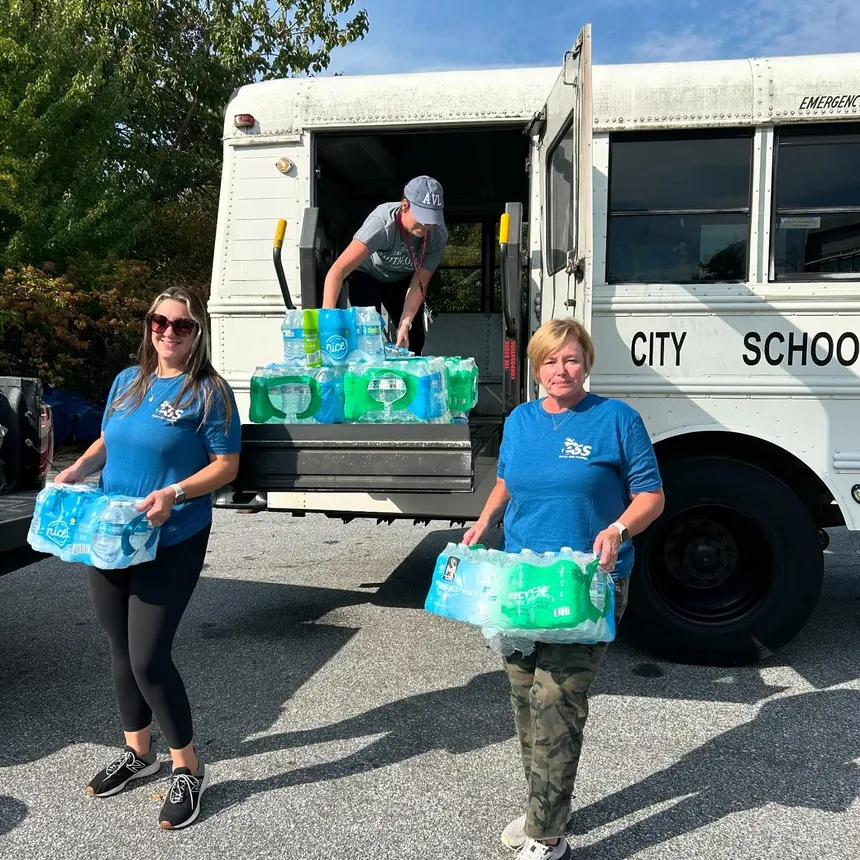
In the meantime, two of Asheville City Schools' buildings have been turned into donation dropoff and water and meal distribution sites. In Buncombe County, many schools are being used to house first responders and linemen from around the country, said Ken Ulmer, chief communications officer for Buncombe County Schools. Those housed on school campuses without water have access to portable commodes and showers in parking lots, he added in an email.
Schools have also mobilized in other ways.
Buncombe County's transportation team members — who volunteered to drive school buses to help with evacuations in the height of the storm — are now helping fuel emergency vehicles and deliver critical fuel supplies to communication towers. The district's nutrition teams provided food to some temporarily housed in school buildings and to local shelters. Its facilities and maintenance teams cleared pathways to school buildings, allowing them to be used by government, community and faith-based partners as distribution sites for food and water.
"At this time, we are still able to use our buildings as a valuable community resource," said Buncombe County Schools Superintendent Rob Jackson in a regional briefing Wednesday. "That's what public schools are every day, and especially now."
Meeting academic, social and emotional concerns
With rescue and recovery still underway, academics have been put on hold for the near future.
"Honestly, we need five-gallon empty water containers with lids" to manually flush toilets in absence of water lines, said Dechant. "And cellular service is just not consistent right now. So virtual learning is not on the table." The district is weighing the possibility of learning packet distribution, similar to what happened when COVID-19 shut down school buildings, she added.
However, students' social and emotional states have taken priority even over that. In the coming days, the district plans to push out online and paper forms surveying families on their basic, social and emotional needs — information that will then be routed to social workers and counselors. Dechant hopes donations to the Asheville City Schools Foundation, which is collecting donations in light of the storm, will help pay for the additional therapists and housing needs.
"This is a significant additional trauma, and we're very worried," Dechant said. "It's a lot to process."
Another hurricane on the horizon
Schools in Florida are bracing for yet another storm. Hurricane Milton, now a Category 5 storm, is expected to hit the Gulf Coast on Wednesday night.
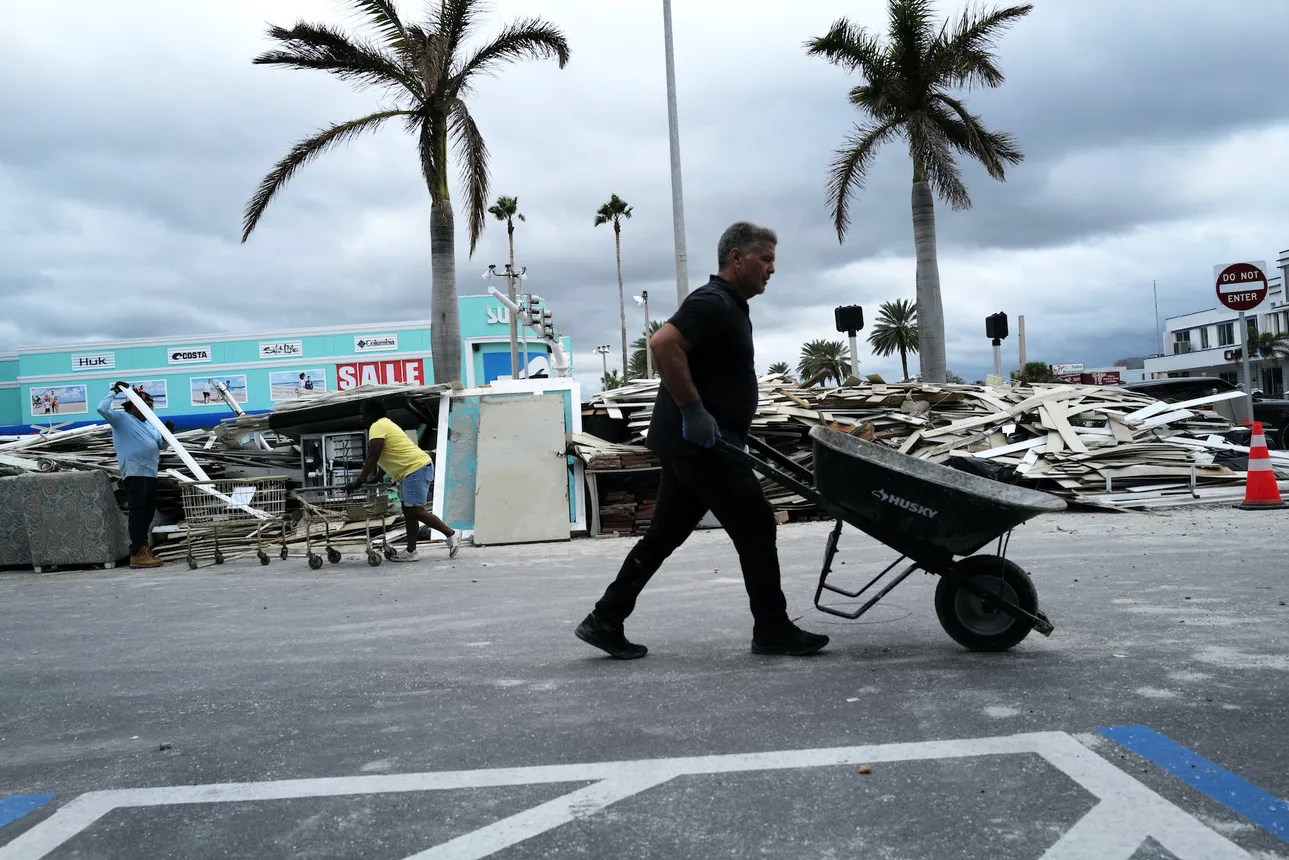
Lee, Sarasota and Manatee County Schools — three districts south of St. Petersburg — are among those that have already canceled school and athletics beginning Monday, as several of their buildings are planned to be used as shelters by Tuesday. They have so far announced closures at least until Wednesday.
According to the Florida Department of Education, the number of districts closed or released early for the storm will reach at least 23 by Tuesday and 36 by Wednesday. Additional closures are expected, the department said in a Sunday post on X.
Just four days prior, on Oct. 2, all Florida school districts had announced reopening dates following Helene.


